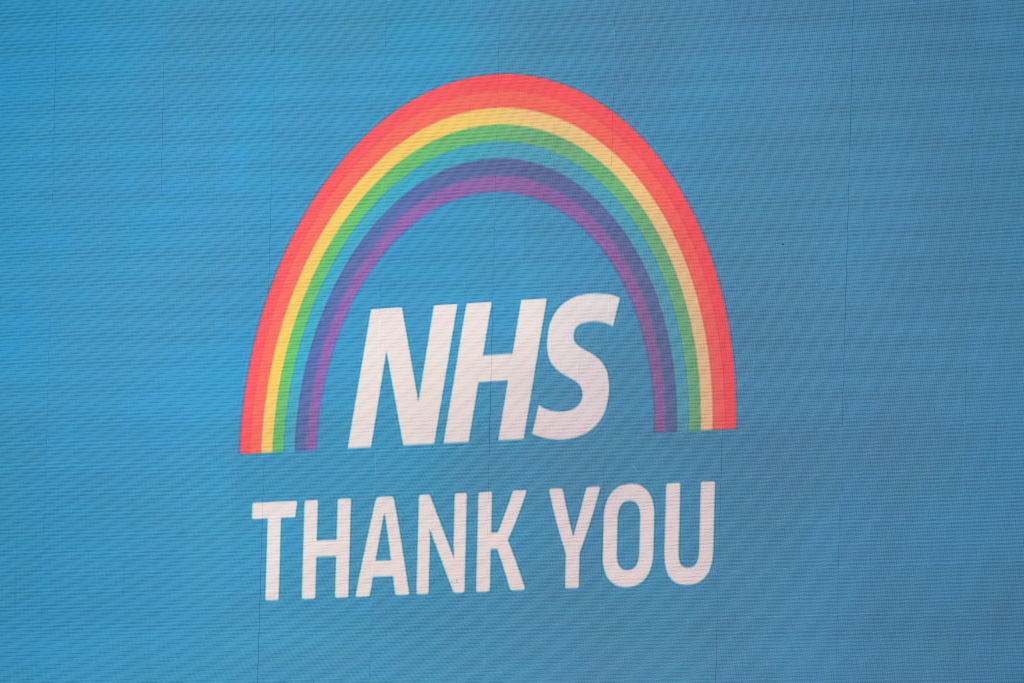Who should we thank for our Covid vaccines? For many, the answer is straightforward: the National Health Service.
‘Thank you NHS’, says a profile sticker shared by thousands of Brits on Facebook. But while Britain’s undoubtedly successful vaccine programme owes a great deal to the efforts of NHS staff, is it right to thank the NHS itself? Left to its own devices, would the NHS have delivered in quite the same way? And how much should we credit Boris’s vaccine task force – rather than the health service – for the vaccine rollout?
I am a critic of the NHS – but not for the sake of it. I criticise it when it delivers worse outcomes than comparable systems, which it often does. But where it does as well as other systems, or better, I am happy to acknowledge that, and this is one of those occasions. So, credit where it is due. The vaccine has been the big game changer, and Britain’s vaccine rollout is an unambiguous success story. More than half of the population have received at least one dose of a Covid vaccine, which is almost twice as high as in the EU. And it is showing results. In early February, the UK still recorded more Covid deaths per day than the EU, relative to population size. The EU’s death rate is now much greater than the UK’s, because the latter has all but collapsed, while the former is only coming down painfully slowly.
NHS cheerleaders should not get too carried away either
Nonetheless, NHS cheerleaders should not get too carried away. First of all, a vaccine is a very unusual kind of good. In areas where everyone wants the same thing, and where the delivery of that thing consists of monotonous, repetitive tasks, a state bureaucracy can indeed be just as effective as a market process.
A vaccine is the perfect example of this. We do not need an entrepreneurial discovery process to work out the best way to deliver a vaccine. It is more like a military operation. We do not need variety, we do not need creativity, we do not need choice between competing providers. We just need to scale the operation rapidly, and then do the same thing over and over again: needle, arm, needle, arm, needle, arm. I suspect if the Soviet Union still existed, its vaccination programme would be pretty good.
Even then, though, if we look at vaccination progress internationally, it is not the case that state-run health services are necessarily ahead of mixed systems or market-based systems. Finland, for example, has a heath system not too dissimilar from the NHS, while Germany has a market-based multi-payer system. Vaccination figures for the two countries are very similar. Spain and Italy have state-run health services comparable to the UK’s, the Netherlands and Belgium have competitive healthcare markets comparable to Germany’s. The differences in vaccine rollout? Barely perceptible.
The star performer, Israel, has a system of four competing healthcare groups. Chile, where nearly half of the population have received at least one vaccine dose, has a mixed system with a large public health insurer and various competing private ones.
There are lessons to be learned from the vaccine rollout, especially with regard to the failure that is the EU’s centralised vaccine procurement programme. But the rollout tells us very little about the pros and cons of different types of healthcare systems.
It is also a bit awkward for NHS cheerleaders that during the vaccine rollout, the NHS deviated quite a bit from its customary way of doing things. It suspended its usual hostility to the involvement of private sector actors, and adopted an ‘all hands on deck’ approach instead, which involved private pharmacies alongside NHS-run vaccination centres. But somehow, I doubt that many want to draw the conclusion that private sector involvement is the way to go.
Last but not least, if we want to credit the NHS for what went well during the pandemic, it must also be permissible to talk about its role in what went wrong. We must then also ask why, in cumulative terms, the UK still has a higher Covid death rate, and a higher excess death rate, than, for example, France, Switzerland, Austria, the Netherlands or Israel – countries which had to deal with a higher number of Covid cases per million people than Britain.
We cannot limit international performance comparisons to the few instances where this leads to socially desirable results. So let’s thank NHS staff for their efforts in rolling out the vaccines. But let’s not also ignore the lessons that can be learned from the health service’s response to the pandemic.






Comments